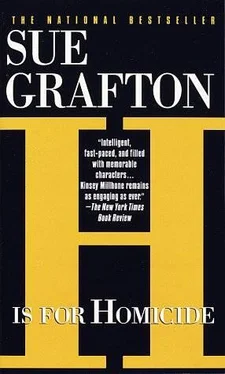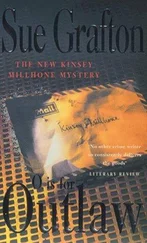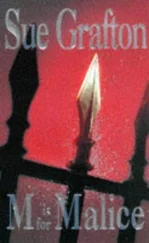I settled down for the night on my lumpy couch. I longed to be at home in the safety of my own bed. I could feel anxiety whisper at the base of my spine. There was an ancient, familiar physical sensation I couldn't at first identify – some piece of my childhood being stirred up by circumstance. I felt a squeezing in my stomach – not an ache, but some process that was almost like grief. I closed my eyes, longing for sleep, longing for something else, though I couldn't think what. My eyes came open and in a flash, I knew. I was homesick.
My aunt had sent me off to summer camp when I was eight, claiming that it would be good for me to "get away." I see now maybe she was the one who needed the relief. She told me I'd have a wonderful time and meet lots of girls my own age. She said we'd swim and ride horses and go on nature walks and sing songs around the campfire at night. In dizzying detail, memories passed across my mental screen. It was true about the girls and all the activities. What was also true was that after half a day, I didn't want to be there. The horses were big and covered with flies, hot straw baseballs coming out their butts at intervals. Their muzzles were as soft and silky as suede with little prickles embedded in it, but when you least expected it, they would whip their heads up quick and try to bite you with teeth the size of piano keys. Nature turned out to be straight uphill, dusty and hot and itchy. The part that wasn't dry and tiresome was even worse. We were supposed to swim in a lake with an Indian name, but the bottom was vile and squishy. Half the time I worried there'd be broken bottles buried in the ooze. One false step and I knew my tender instep would be slashed to the bone. When I wasn't worried about slime and sharp rocks, I worried about the creatures gliding through the murky depths, tentacles trailing languidly toward my pale skinny legs. The first night around the camp-fire, after we sang "Kumbayah" about six times, they told me about this poor girl camper who had drowned two years before, and one who'd had an allergic reaction to a bee sting and nearly died, and another who broke her arm falling out of a tree. Also one of the girl counselors had been parked with her boyfriend necking when the radio announcer told about this escaped raving maniac and after they rolled the car window up and drove away quick, there was his hook right in the window. That night I cried myself to sleep, weeping in utter silence so as not to disgrace myself. In the morning, I discovered that I had all the wrong kind of shorts and I was forced to endure a lot of pitying looks because mine had elastic around the waist. At breakfast, the scrambled eggs were flabby and had white parts this girl in my cabin said were made out of unborn baby bird. After I was sick and got sent to the infirmary, there was a twelve-year-old girl who was bleeding, but they said wasn't really hurt. It was just a dead baby coming out of her bottom every month. At lunch, there was carrot salad with dark spots. The next day, I went home, which is where I wanted to be now. I slept poorly.
EARLY THE NEXT morning, the Santa Teresa cops called to say Chago's autopsy had been completed. Raymond went off to the funeral home to make arrangements to have the body brought down. The funeral director had apparently assured him by phone that he could have Chago ready for viewing that evening. Rosary would be recited Sunday evening at the funeral chapel. A mass would be said at 10:00 A.M. Monday morning at Blessed Redemption, with interment following at Roosevelt Memorial Park in Gardena.
When Raymond got back he conferred with Luis, who left soon afterward with the dog. Word was apparently out on the street. The same two girls I'd seen the first day showed up and sat down at the kitchen table, where they began putting together paper booklets with a stapler and some colored marker pens. I could see "R.I.P. CHAGO" in ornate Gothic letters on the front. A stack of Xeroxed photographs were being collated with printed matter. Within an hour, Chago's old homies began to arrive in twos and threes, some accompanied by wives or girlfriends. Most of them seemed too old to be active gang members at this point. Drugs, cigarettes, and booze had taken their toll, leaving bloated bellies and bad coloring. These were the survivors of God knows what turf wars, guys in their late twenties who probably considered themselves fortunate to be alive. The mood of the gathering was one of muted uneasiness, a community of mourners assembling to honor a fallen comrade. All I'd known of Chago was his last inching journey toward a Santa Teresa street corner. In the rain and the darkness, he'd set his failing sights, hunching toward home. I saw no sign of Juan or Ricardo, Raymond's two remaining brothers, but Bibianna assured me they'd be at the funeral home later. I gathered visiting hours would extend through the evening and both of us would have to be there. In the meantime, I was feeling awkward. I hadn't known Raymond's brother and didn't know any of the people who'd come to pay then- respects. I was looking for the opportunity to excuse myself discreetly and retire to my room. There was a little flurry by the front door and the priest arrived in clerical black, a hyphen of snowy white collar visible at his neck.
Bibianna leaned close and murmured, "Father Luevanos. He's the parish priest."
Father Luevanos was in his sixties, a spare man with a withered face and a frizzy cloud of white hair. He was small and trim, shoulders narrow, his hands long and thin. He seemed to hold them away from his body, palms facing outward, like St. Francis of Assisi only minus the birds. He moved through the crowd, talking softly to each of his parishioners. He was treated like royalty, people parting to let him through. Raymond crossed to his side. Father Luevanos took his hands and the two murmured together in a mixture of English and Spanish. I could see Raymond's grief surface" in response to the priest's compassion. He didn't weep, but his face underwent a curious series of tics that, from a distance, looked like the fast-forward sequence of a man in tears. I gathered Chago had been one of Raymond's anchors, perhaps the only family member who really loved Raymond and was loved in return. Raymond caught my eye. He beckoned me over and introduced me to the priest. "She's from Santa Teresa."
Father Luevanos held on to my hands while we talked. "Nice to meet you. You have a lovely community in Santa Teresa. How long have you known Valensuelo?"
"Who?"
"Chago," Raymond murmured.
"Oh." I could feel my cheeks color. "Actually, I'm a friend of Bibianna's."
"I see."
As if on cue, Bibianna moved forward to greet the priest. She had changed into a black skirt, a white blouse, and black spike heels. She had tucked a red satin rose in her hair. Her face was very pale, makeup looking stark against the pallor of her cheeks. "Father…" she whispered. She was close to tears and her mouth began to tremble when he took her hands. He leaned toward her, murmuring something in Spanish. She must have felt an almost overwhelming impulse to unburden herself.
Once Father Luevanos had departed, the mood of the place began to lighten. The afternoon had a lazy feel to it, despite the occasion. The front door stood open and the crowd spilled out onto the balcony. Some of the guys had brought six-packs, chips, and salsa. Conversations were punctuated by the hiss of pop-tops. There was muted laughter and cigarette smoke. Somebody brought a steel-string guitar and picked out intricate melodies. A nine-month-old baby named Ignatio toddled five steps and then sank down on his diapered behind, thoroughly satisfied with the applause his journey had netted him.
At five-thirty, the crowd began to thin. We were expected over at the funeral home early so Raymond could view the body before the others arrived. We headed out for the funeral home at six. Bibianna and I sat together in the backseat. Luis drove. Raymond sat in the passenger seat, silent and distraught, clutching a bundle he'd carried out of the bedroom with him, wrapped loosely in the folds of a white satin scarf. His emotional distress had set off a whole galaxy of symptoms, jerks and twitches that seemed all the more wrenching for the look on his face. In the space of an hour, he'd gone from a vicious hoodlum to a scared-looking kid, overwhelmed by the ordeal that lay ahead of him.
Читать дальше












